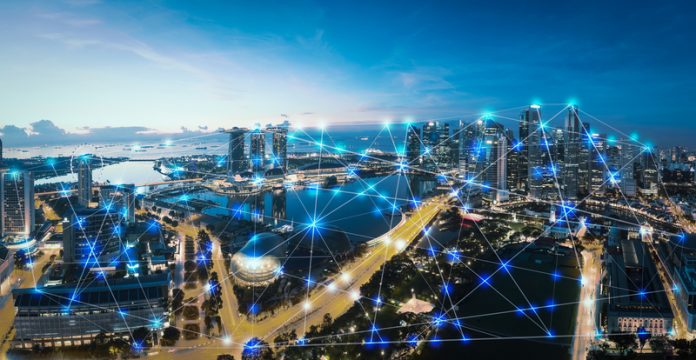A report by Philips Lighting and SmartCitiesWorld has named Singapore, London and Barcelona as top global smart cities
Naming Singapore, London and Barcelona as the world’s best smart cities, a report by Philips Lighting and SmartCitiesWorld reveals that visionary leadership is the factor that would make the biggest difference to the success of smart city programs, cited by 56% of respondents.
The potential rewards are high, according to the study, which cites Barcelona as a prime example, having created an estimated 47,000 jobs through the implementation of Internet of Things (IoT) systems, saved EUR 42.5 million on water and generated an extra EUR 36.5 million a year through smart parking2.
One in 10 city authorities lack capacity to develop smart city
One in 10 authority representatives stated that they did not have the capacity to look at developing a smart city program and are held back by budget limitations, a lack of infrastructure, short-term planning and a lack of leadership on implementation.
However, the report suggests that projects that deliver short-term gains as well as providing infrastructure for the long-term can overcome these issues, such as telco-integrated street lighting in San Jose and smart LED streetlights in Los Angeles, which deliver annual cost savings of USD 9 million and will repay the upfront cost within seven years.
Implementing smart lighting technology not only reduces energy consumption but it has also been seen to lower crime rates, support local businesses and create a more aesthetically pleasing environment.
Cities consume 70% of world’s energy
Cities consume 70% of the world’s energy and by 2050 urban areas are set to be home to 6.5 billion people worldwide, 2.5 billion more than today.
“City authorities face complex and challenging choices concerning infrastructure, balancing the need to maintain existing services while investing in improvements, managing population growth and enhancing sustainability – all within tight budget constraints,” said Jacques Letzelter, Segment Manager at Philips Lighting.
“New technologies can already transform the way cities deliver, operate and maintain public amenities, from lighting and transportation to connectivity and health services.
“Often, however, adoption is slowed by the division of work and the selection of technology that doesn’t easily work together or integrate with other city services.
“Fortunately, there are many successful examples of smart city projects that prove these obstacles can be overcome, with the right collaborative approach and integration technologies.
These projects show that smart cities can bring about better lives and enhanced safety for their citizens.”
Embracing the IoT
Revolutionising the collection of data (35%), revolutionising communication for accurate service delivery (15%) and managing the strain on urban resources (13%) were ranked as the top three areas where the IoT would be most effective in cities.
The top three smart cities were all noted for very different strengths in their smart city programs.
- Singapore was praised for its forward-thinking infrastructure including its buildings, transportation and use of underground space.
- London was commended for its focus on communities when implementing technology.
- Barcelona was noted for its top-level government driving change.
“Collaboration is key. For cities to truly benefit from the potential that smart cities offer, a change in mindset is required where local authorities plan longer and across multiple departments,” said Andreas Knobloch, Alliance Specialist at Philips Lighting.
“We must think of city-wide systems as one ecosystem working together. At the same time, we all – technologists, local governments, businesses, environmentalists and the general public – must help to build the investment case to enable cities to successfully implement smart city programs.”
Read the full report here











